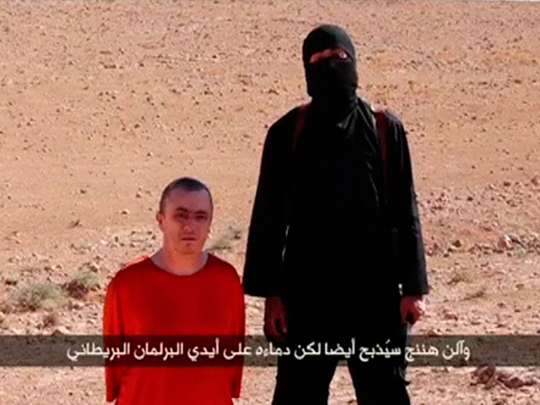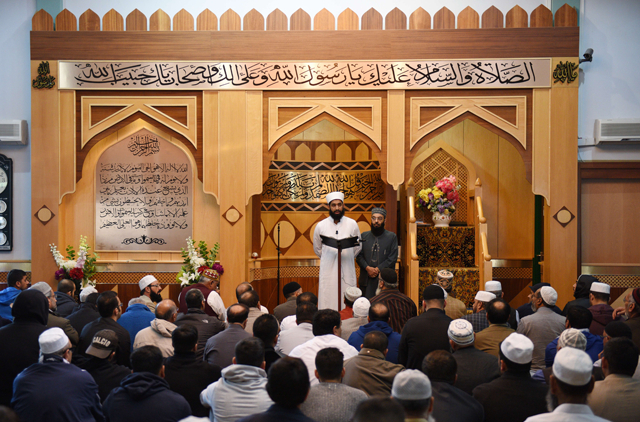
LONDON: Britain united in revulsion Saturday at the beheading of aid worker Alan Henning claimed by Daesh, as the imam at his home city's main mosque hailed a "local and national hero".
Prime Minister David Cameron led tributes to the 47-year-old taxi driver who had travelled to Syria to deliver aid and whose murder was claimed by Daesh in a graphic video released late Friday.
Henning left his wife and two teenage children in Manchester, northwest England, last December to drive in an aid convoy for Syrians displaced by war when he was kidnapped. He reportedly had "Aid4Syria" tattooed on his arm.
His family said they were "numb with grief" while British Muslims spoke out to condemn the killing.
"Alan Henning was our local and national hero," said Imam Asim Hussain of Manchester Central Mosque.
"We will remember him as a tireless and selfless humanitarian aid worker whose only concern was to help people in need."
He added: "The killing of Alan Henning was a cowardly and criminal act of appalling brutality by a group who do not represent Islam at all and in fact are an insult to the Islamic faith."
The Muslim Council of Britain, the country's biggest Muslim umbrella organisation, said his murder was a "despicable and offensive act".
News of Henning's murder came three weeks after a video showing the beheading of another British aid worker, David Haines, was released.
Henning is the fourth Western hostage murdered by Daesh militants since August.
Speaking after a meeting with intelligence, military and government officials on Saturday, Cameron vowed to "do everything we can to hunt down and find the people who are responsible for this".
Henning was a "man of great peace, kindness and gentleness", Cameron said, adding: "The fact they could murder him in the way they did shows what we are dealing with."
'No red lines'
Henning's wife Barbara and his two children said they had hoped never to receive news of death.
"We always knew that Alan was in the most dangerous of situations but we hoped that he would return home to us. That is not to be," the family said in a statement released by Britain's Foreign Office.
But Henning's brother-in-law, Colin Livesey, told BBC television that the British government could have taken further action to protect him.
"They could have done more when they knew about it months and months ago," he said. "I just don't think they did enough in my eyes."
His comments were echoed by Majid Freeman, an aid worker who had travelled to Syria with Henning.
"The government have done nothing at all to help his case. If anything, they voted for air strikes which may have sealed his fate," he told BBC radio.
Henning was killed despite a wave of appeals by British Muslims for his life to be spared.
Peter Neumann, professor of security studies at King's College London, said the execution had made clear that the Daesh group had "no red lines".
"There's been a massive campaign over the past two weeks by pretty much every facet of the Muslim community in this country to get him to be released, including by a lot of people who would normally be considered extremist," he told BBC radio.
Britain's parliament voted last week for its forces to join US-led raids on targets in Iraq but not Syria and now has eight Tornado jets flying sorties from Cyprus.
Several hundred people joined a march in central London protesting against British involvement in the air strikes, chanting slogans including "Hands off the Middle East, no justice, no peace".
The protest, arranged before news emerged of Henning's death, was due to end outside Cameron's Downing Street office.













